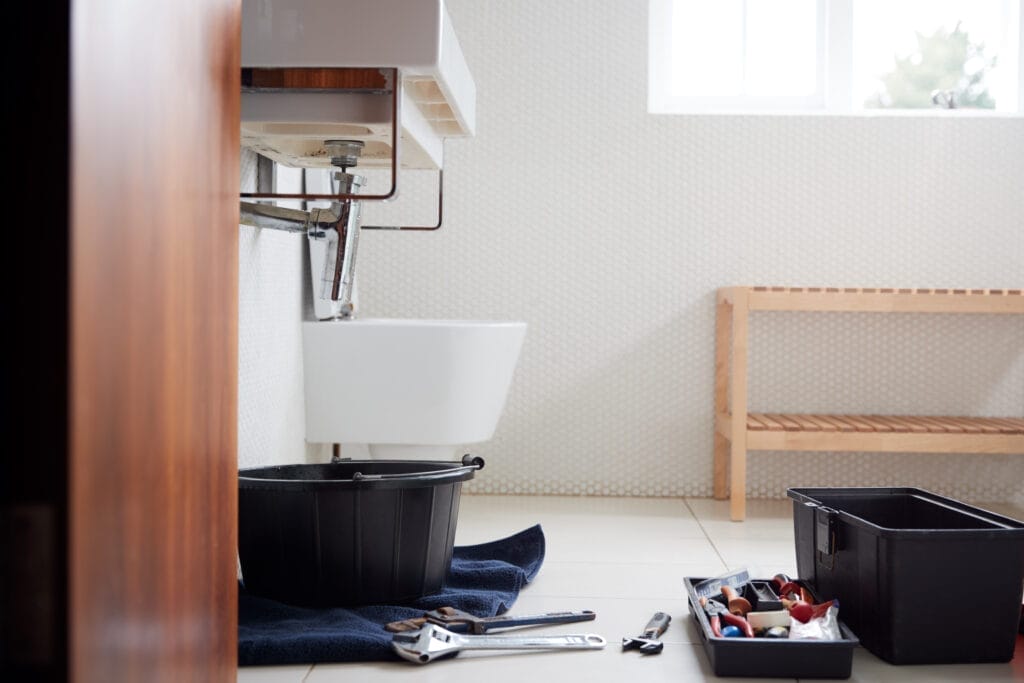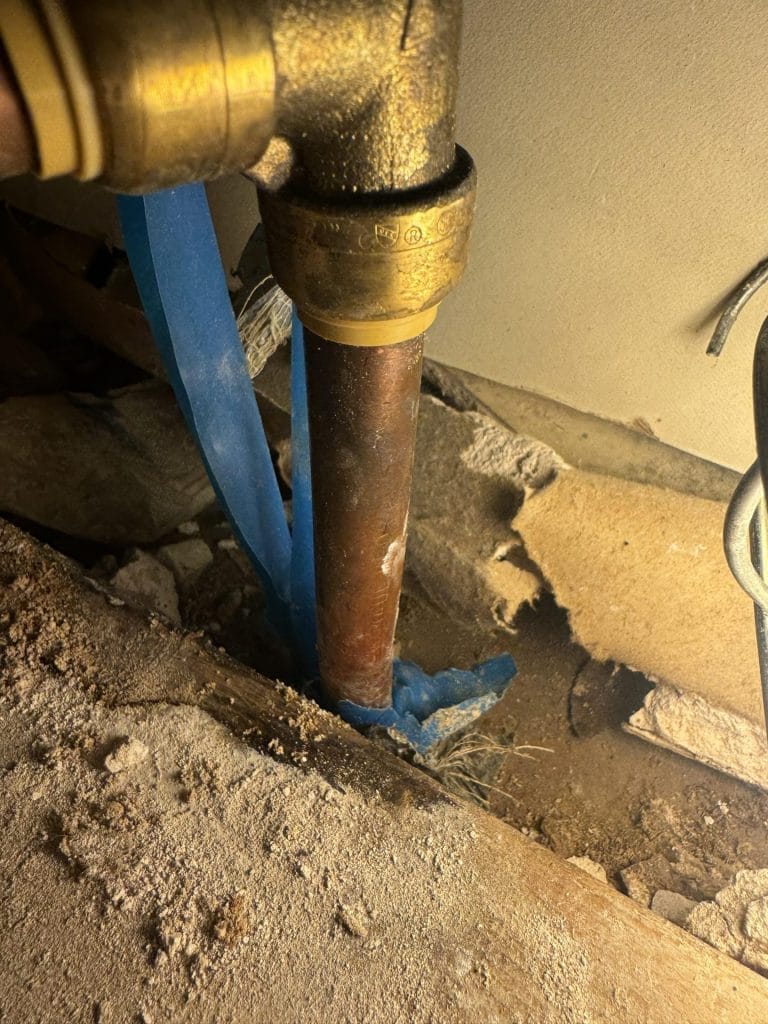
Wondering how to stop costly plumbing leaks? Plumbing leaks can start as small drips but can quickly escalate into significant and costly problems if left unchecked. For homeowners in the Denver metro area, preventing plumbing leaks is essential not only for avoiding water damage but also for saving on repair costs and conserving water. Here are some effective strategies to prevent plumbing leaks and keep your home’s system running smoothly.
1. Inspect Your Plumbing Regularly
Regular inspections can help you catch potential leaks before they become serious. Check under sinks, around toilets, and near water heaters for any signs of moisture, corrosion, or small leaks. Pipes that appear worn or corroded should be replaced by a professional plumber. Being proactive about inspections helps you avoid costly repairs later.
2. Monitor Your Water Pressure
High water pressure may feel great in the shower, but it can put excessive strain on your plumbing system. Over time, high pressure can weaken pipes, causing them to crack or burst. To avoid this, use a water pressure gauge to check your home’s pressure regularly. The ideal range is between 40-60 psi. If the pressure is too high, consider installing a pressure-reducing valve to protect your pipes.
3. Watch for Early Signs of Trouble
Small signs like water stains on ceilings or walls, dripping faucets, or slow-draining sinks can indicate early plumbing issues and save you from costly plumbing leaks. Don’t ignore these warning signs. A dripping faucet, for instance, can waste hundreds of gallons of water a year and lead to further pipe damage. By addressing these minor issues right away, you can prevent them from turning into costly leaks, and save yourself money
4. Prevent Frozen Pipes in Winter
Denver’s cold winters can lead to frozen pipes, which often result in major leaks. When water freezes, it expands, which can cause pipes to burst. To prevent this, insulate exposed pipes, particularly those in unheated areas like basements, garages, and crawl spaces. In extreme cold, let faucets drip slightly to keep water moving and prevent freezing. If you plan to be away during the winter, leave your thermostat set to at least 55°F to avoid frozen pipes.
5. Be Mindful of What Goes Down the Drain
Clogged pipes are a common cause of plumbing leaks. To avoid this, never flush anything other than toilet paper down the toilet, and be cautious about what you put down your kitchen sink. Grease, food scraps, and hair can build up in your drains, leading to blockages that cause pressure on your pipes and result in leaks. Use strainers in your drains and avoid pouring grease down the sink.
6. Upgrade Old Plumbing
To prevent costly plumbing leaks, upgrade your old plumbing. Older homes in the Denver metro area may have outdated plumbing systems that are more prone to leaks. If your home’s plumbing is over 20-30 years old, it may be time for an upgrade. Replacing old pipes made of materials like galvanized steel or polybutylene with modern materials like PEX or copper can prevent leaks and improve your home’s water flow and quality.
Why Proactive Plumbing Care Matters: How To Stop Costly Plumbing Leaks
Preventing leaks is far easier and less expensive than dealing with the aftermath of a burst pipe or water damage. Regular maintenance, early detection, and taking preventive steps can save you from costly repairs and water waste.
At Top Shelf Electric, Heating, & Plumbing, we offer comprehensive plumbing services, including inspections, repairs, and leak prevention. Serving homeowners throughout the Denver metro area and Colorado Springs, our team ensures that your home’s plumbing is reliable and leak-free.
Contact us today to schedule an inspection or plumbing service to keep your home safe from leaks.

